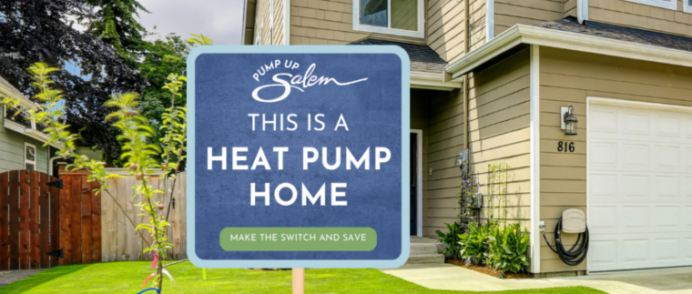
Students were tasked with the opportunity to design a campaign to educate Salem residents on heat pumps and their benefits to support the city’s sustainability initiatives. The overarching goal of the campaign was to increase awareness of heat pumps and an understanding of their benefits in Salem. To achieve this goal, students developed a strategy […]
Read More… from Pump Up Salem
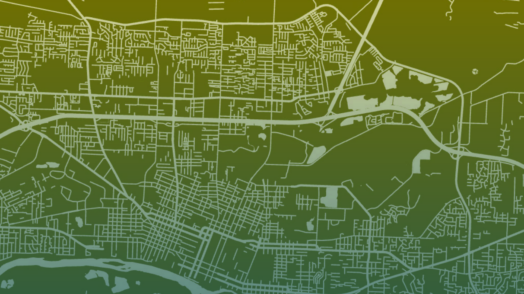
The City of Salem, Oregon, has shown dedication to achieving sustainability goals and revitalizing its neighborhoods by conducting walkability and comprehensive corridors assessments. As part of the Sustainable City Year Program, students from the Geography Department at the University of Oregon participated in an Advanced Geographic Information Systems (GIS) class in collaboration with Salem to […]
Read More… from Navigating Urban Networks: A GIS Exploration of Walkability in Salem, Oregon
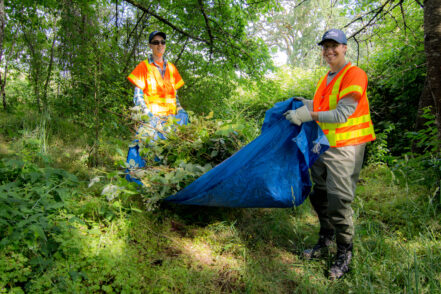
The Strategic Planning and Cases course (J 453) at the University of Oregon worked with the City of Salem to develop outreach campaigns to address the City’s volunteerism and community engagement needs. Although each student team developed a campaign plan that focused on a distinct target audience, all teams had two common goals: 1) Improve […]
Read More… from Volunteerism & Civic Engagement – The Next Wave
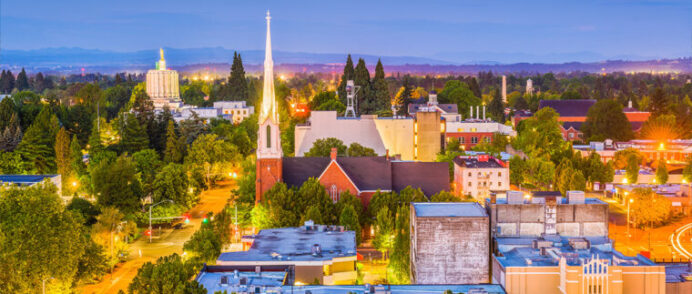
The City of Salem implemented a City Operations Fee in 2019 to supplement revenue for its General Fund. The City was concerned, however, that the current fee structure does not adequately account for equity across commercial and residential classes. As one part of its effort to improve the equity of the fee’s administration, the City […]
Read More… from City of Salem’s Commercial and Residential Operations Fee: Recommendations to Augment Fee Equity
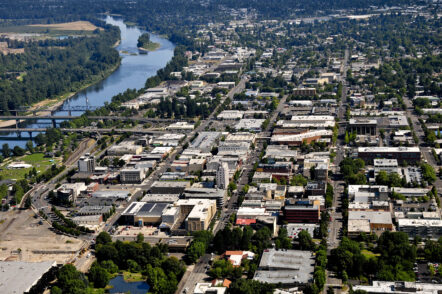
Students in the PR Campaigns capstone course devised three strategies to reduce idling in the city of Salem, Oregon. Strategy 1 emphasizes the city leading by example, calling for city employees to cease idling to encourage broader community participation. This approach builds credibility within the city workforce and sets the tone for collective action. To […]
Read More… from The Lowest Hanging Cherry: Stopping Idling
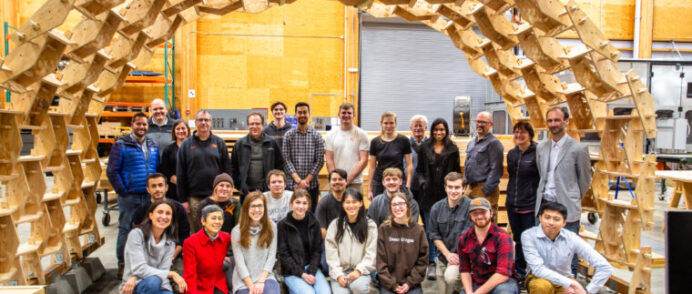
Exploring innovative kit-of-parts construction methods, our project centers on the adaptable nature of reciprocal frame construction, focusing on sustainable reuse of panel materials such as plywood and Mass Plywood Panels (MPP). The University of Oregon (UO)-Oregon State University (OSU) collaboration generated diverse ideas for a small seasonal pavilion in Salem, Oregon’s Highland Park. Following a […]
Read More… from Timber Tectonics: Building for the Circular Economy
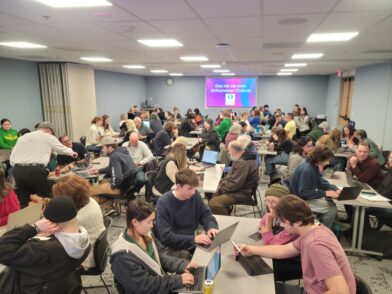
In an era defined by rapid urbanization, the effective planning and management of cities have become paramount to ensure sustainable development, efficient resource allocation, and enhanced quality of life for residents. Traditional methods of urban planning and management are grappling with the complexities and challenges presented by modern cities. Enter Artificial Intelligence (AI), a disruptive […]
Read More… from Green Cities Artificial Intelligence
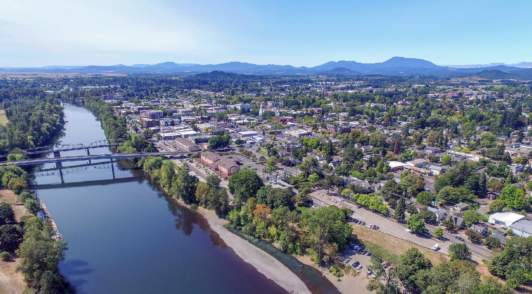
Over fall term 2023, Community and Regional Planning graduate students worked with the City of Corvallis to reimagine how a 14-acre site in north central Corvallis, along the city’s 9th Street commercial/mixed use corridor, might redevelop and intensify under the city’s recently adopted commercial mixed use (CMU) zoning standards. Three student groups analyzed the opportunities, […]
Read More… from Corvallis 9th Street Urban Redesign
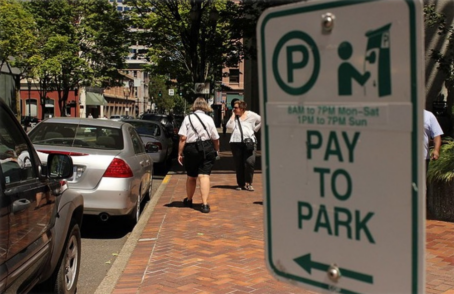
In November 2022, the Oregon Department of Land Conservation and Development issued parking reform for cities with populations above 5,000 to address the financial and environmental burdens of parking mandates. In addition to reforms that all included cities must make, the cities with populations over 100,000 must choose between eliminating parking mandates or adopting pricing […]
Read More… from Let’s Start Counting! A Methodology to County On-Street Parking Spaces in Oregon Cities
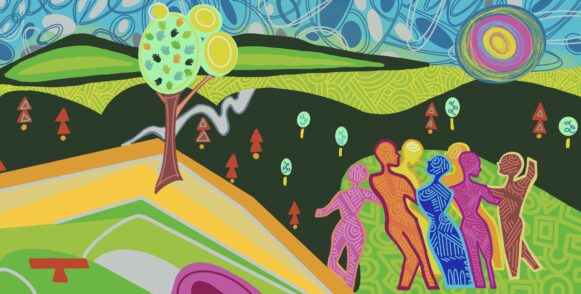
Like many states across the United States, Oregon has a history of using transportation, land use, and housing tools inequitably, which has directed and concentrated benefits to the privileged and harms to underserved communities. Oregon’s past included restrictions on who could own land, redlining and exclusionary zoning, prohibiting more affordable types of housing, and unjust […]
Read More… from Equity-Centered Research Methods for Oregon Communities









